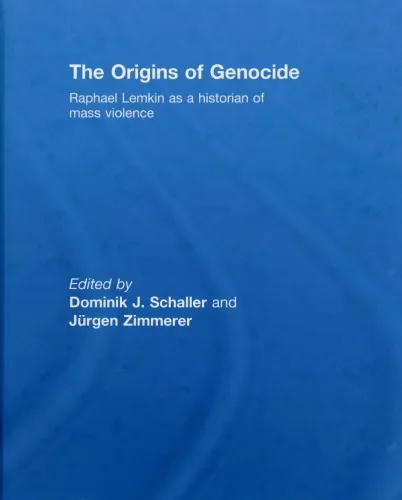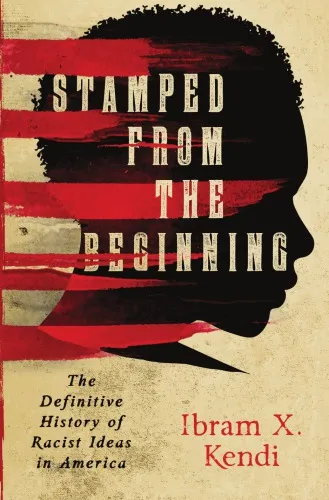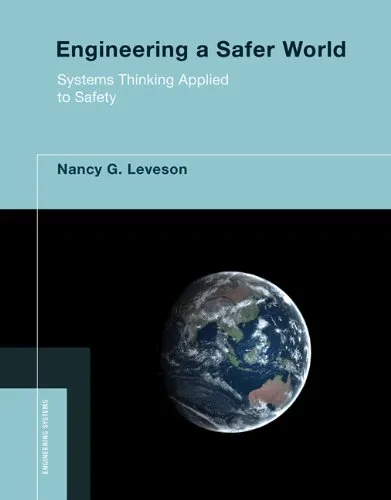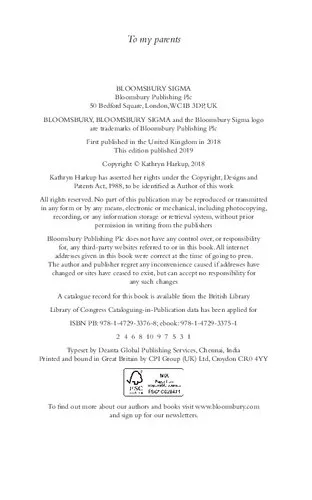The Origins of Genocide: Raphael Lemkin as a historian of mass violence
4.3
بر اساس نظر کاربران

شما میتونید سوالاتتون در باره کتاب رو از هوش مصنوعیش بعد از ورود بپرسید
هر دانلود یا پرسش از هوش مصنوعی 2 امتیاز لازم دارد، برای بدست آوردن امتیاز رایگان، به صفحه ی راهنمای امتیازات سر بزنید و یک سری کار ارزشمند انجام بدینکتاب های مرتبط:
مقدمهای بر کتاب
کتاب "The Origins of Genocide: Raphael Lemkin as a historian of mass violence" اثری پژوهشی و تحلیلی است که به بررسی مفاهیم و ایدههای ابداعکننده واژه "Genocide"، یعنی Raphael Lemkin میپردازد. در این کتاب، نقش لِمکین به عنوان یک مورخ خشونتهای جمعی مورد بررسی قرار میگیرد و اثرات ماندگار تلاشهای او در تعریف و پیشگیری از Genocide تحلیل میشود.
خلاصهای از کتاب
این اثر تلاشهای گسترده Raphael Lemkin در درک و مستندسازی خشونتهای جمعی را دنبال میکند. لِمکین، که خود شاهد وقایع منجر به Genocide در طول تاریخ بوده، تلاش کرد تا با استفاده از تجربیات شخصی و مطالعات عمیق خود، چارچوبی نظری برای مفهوم Genocide ایجاد کند. نویسندگان به بررسی تطبیقی این مفهوم در مراحل مختلف تاریخی میپردازند و نشان میدهند که چگونه ایدههای لِمکین تأثیری عمیق بر سیاستهای بینالمللی و حقوق بشر گذاشته است.
دستاوردهای کلیدی
- تحلیل دقیق و جامع از تحول مفهوم Genocide در طول تاریخ.
- ارائه تصویری شفاف از چگونگی تلاشهای لِمکین در جلب توجه جهانی به مسائل Genocide.
- بحث درباره تأثیرات اجتماعی و سیاسی کارهای لِمکین بر عصر مدرن.
نقلقولهای معروف از کتاب
"وقتی مفهوم Genocide استفاده شد، دیگر امکان نادیدهگرفتن درد و رنج جمعی وجود ندارد."
"پیگیری عدالت برای قربانیان Genocide یک مسئولیت جهانی است."
چرا این کتاب اهمیت دارد؟
این کتاب نه تنها به عنوان یک منبع غنی برای پژوهشگران و دانشجویان رشتههای تاریخ و حقوق بشر جذاب است، بلکه برای سیاستمداران و فعالان حقوق بشر نیز ارزشمند است. در دنیای امروز که Genocide و خشونتهای جمعی هنوز بخشی از واقعیت زندگی میلیونها نفر هستند، درک دقیق و عمیق این مسائل اهمیت بسیاری دارد. کتاب نشان میدهد که چگونه اندیشههای یک فرد میتوانند تغییرات بزرگی را در سطح جهانی به دنبال داشته باشند و به خوانندگان قدرت تفکر و تلاش را برای ایجاد تغییرات مثبت القا میکند.
Introduction
The Origins of Genocide: Raphael Lemkin as a Historian of Mass Violence
The book scrutinizes the historical works and legacy of Raphael Lemkin, a pioneer in the study of genocide whose contributions have shaped contemporary understanding of mass violence. Dominik J. Schaller and Jürgen Zimmerer delve into Lemkin's theories, exploring the frameworks he devised to confront the brutal realities of genocide.
A Detailed Summary of the Book
Lemkin, born in 1900, was a Polish-Jewish lawyer who narrowly escaped the Holocaust. He dedicated his life to understanding and preventing the atrocity of genocide, a term he coined in 1944. This book provides an in-depth analysis of Lemkin’s methodologies in documenting and defining genocide as a specific crime against humanity. It highlights his relentless advocacy for recognizing and punishing genocide under international law.
Schaller and Zimmerer skillfully navigate through Lemkin's extensive writings, providing insights into his intricate ideas and the historical contexts that influenced his pioneering work. By examining Lemkin's studies on historical events, such as the Armenian Genocide and the Holocaust, the authors present an authoritative narrative that underscores the evolution of Lemkin's thoughts and their impact on global legal discourse.
Key Takeaways
- The coining of the term "genocide" was a pivotal moment in modern history, spotlighting the need for a legal framework to address mass atrocities.
- Lemkin's work was instrumental in the establishment of the Genocide Convention of 1948, which continues to influence international human rights law.
- Understanding the origins and definitions of genocide is vital for preventing future atrocities and ensuring justice for victims and survivors.
- The book emphasizes the importance of historical context in analyzing genocidal acts and the necessity of interdisciplinary approaches in genocide studies.
Famous Quotes from the Book
“Genocide is not only a crime against humanity but a deep rupture in the moral fabric of society.”
“Studying Lemkin’s life and legacy offers a mirror through which society can view its darkest impulses and the persistent necessity of legal and moral vigilance.”
Why This Book Matters
Through their meticulous research and analysis, Schaller and Zimmerer bring to light the crucial role Raphael Lemkin played in the development of genocide studies and international humanitarian law. This work not only honors Lemkin’s enduring legacy but also serves as a critical resource for scholars, legal experts, and policymakers. The book’s exploration of the origins and definitions of genocide provides essential knowledge for anyone striving to comprehend and combat this gravest of human rights violations.
Importantly, the book serves as a reminder that the fight against mass violence is ongoing. Understanding Lemkin's contributions offers pathways for modern approaches to prevention and justice, reinforcing the idea that vigilance and commitment are key in ensuring that history does not repeat itself.
دانلود رایگان مستقیم
شما میتونید سوالاتتون در باره کتاب رو از هوش مصنوعیش بعد از ورود بپرسید
دسترسی به کتابها از طریق پلتفرمهای قانونی و کتابخانههای عمومی نه تنها از حقوق نویسندگان و ناشران حمایت میکند، بلکه به پایداری فرهنگ کتابخوانی نیز کمک میرساند. پیش از دانلود، لحظهای به بررسی این گزینهها فکر کنید.
این کتاب رو در پلتفرم های دیگه ببینید
WorldCat به شما کمک میکنه تا کتاب ها رو در کتابخانه های سراسر دنیا پیدا کنید
امتیازها، نظرات تخصصی و صحبت ها درباره کتاب را در Goodreads ببینید
کتابهای کمیاب یا دست دوم را در AbeBooks پیدا کنید و بخرید
1502
بازدید4.3
امتیاز0
نظر98%
رضایتنظرات:
4.3
بر اساس 0 نظر کاربران
Questions & Answers
Ask questions about this book or help others by answering
No questions yet. Be the first to ask!















